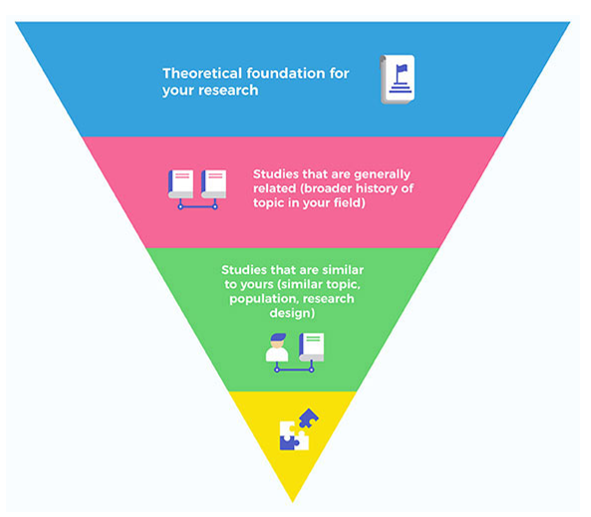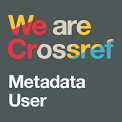Ecotheology in the Perspective of Islamic Education: A Conceptual Review
DOI:
https://doi.org/10.51574/ijrer.v4i3.3253Keywords:
Curriculum, Ecotheologi, Islamic Education, Learning Methods, Transformative LearningAbstract
Massive environmental degradation, climate change, and other ecological crises demand responses that are not only technocratic but also transformative in terms of values and worldview. Islamic education with an ecotheology paradigm can be an instrument of social transformation towards a more sustainable and ecologically just civilization. Therefore, this study aims to underscore the growing urgency of incorporating ecotheology into Islamic education in the Anthropocene era. With a qualitative approach and literature review, this work reveals that ecotheology in Islamic education requires a holistic and integrated approach, from the philosophical to the practical level. The curriculum, learning methods, and the role of educators must be aligned to create a transformative learning experience. The existing challenges can be overcome through a comprehensive strategy and strong commitment from all stakeholders. Islamic education that integrates ecotheology will be able to produce a generation of Muslims who are not only individually pious but also have high ecological awareness and responsibility. They will become agents of change who can contribute to building a sustainable and ecologically just civilization.
References
Abdelzaher, D. M., Kotb, A., & Helfaya, A. (2019). Eco-Islam: Beyond the principles of why and what, and into the principles of how. Journal of Business Ethics, 155, 623-643. https://doi.org/10.1007/s10551-017-3518-2
Abd Rahman, N., & Jalil, M. H. (2021). Awareness of the role of “religious people” in environmental conservation from the perspective of Islamic studies students. Creative Education, 12(8), 1755-1772. https://doi.org/10.4236/ce.2021.128133
Alhasbi, F., Fathurrahman, M., & Ahmad, A. A. M. (2024). Agama sebagai Anugerah Semesta: Memahami Makna Islam Rahmatan lil'Alamin. Pawarta: Journal of Communication and Da'wah, 2(2), 113-132. https://doi.org/10.54090/pawarta.718
Amiruddin, A. (2021). Amanah Dalam Perspektif Al-Quran (Studi Komparatif Tafsir Al-Misbah Dan Al-Azhar). Jurnal Mudarrisuna: Media Kajian Pendidikan Agama Islam, 11(4), 833-850. https://doi.org/10.22373/jm.v11i4.4665
Annibras, N. R., & Afham, M. A. (2024). The Concept of Ecology Based Education in the Qur'an: An Analysis of Surah Al-Baqarah, Verse 164 in Tafsir Al-Jalalain and Tafsir Al-Mawardi. Bunayya: Islamic Education and Teaching Journal, 1(3), 26-44. https://journal.zamronedu.co.id/index.php/bunayya/article/view/54
Begum, A., Jingwei, L., Marwat, I. U. K., Khan, S., Han, H., & Ariza-Montes, A. (2021). Evaluating the impact of environmental education on ecologically friendly behavior of university students in Pakistan: The roles of environmental responsibility and Islamic values. Sustainability, 13(18), 10188. https://doi.org/10.3390/su131810188
Bsoul, L., Omer, A., Kucukalic, L., & Archbold, R. H. (2022). Islam’s perspective on environmental sustainability: a conceptual analysis. Social Sciences, 11(6), 228. https://doi.org/10.3390/socsci11060228
Cholil, S., & Parker, L. (2021). Environmental education and eco-theology: insights from Franciscan schools in Indonesia. Environmental Education Research, 27(12), 1759-1782. https://doi.org/10.1080/13504622.2021.1968349
Choudhury, M. A. (2019). A theory of justice in Islam. In Social justice and Islamic economics (pp. 12-32). Routledge. https://doi.org/10.4324/9780203713426-2
Connaway, L. S., & Radford, M. L. (2021). Research methods in library and information science. Bloomsbury Publishing USA.
Dhanurendra, B. (2023). Islam answers to the environmental crisis: Green economy in islamic perspective. Integration: Journal of Social Sciences and Culture, 1(3), 87-93. https://doi.org/10.38142/ijssc.v1i3.93
Fauzi, I. (2022). Etika Muslim. Wisdom Science Sea.
Fathil, M., Saam, Z., Sukendi, S., & Nizar, S. (2015). Islam and environment: education perspective. Al-Ta lim Journal, 22(2), 96-106. https://doi.org/10.15548/jt.v22i2.128
Fountoulakis, G., & Alkhouri, K. I. (2024). The Ecological Self: Integrating Environmental Psychology, Ecopsychology, and Ecotheology in the Anthropocene. Περιβαλλοντική Εκπαίδευση για την Αειφορία, 6(1), 22-35. https://doi.org/10.12681/ees.38255
Haeriah, S., Falevi, R. A., & Lisalam, R. H. (2025). Studi Tematik Hadis Tentang Hubbullah dalam Tinjauan Teologi. Hikmah: Jurnal Studi Pendidikan Agama Islam, 2(2), 131-144. https://doi.org/10.61132/hikmah.v2i2.909
Hasan, H. (2022). Islam and ecological sustainability: An exploration into Prophet’s perspective on environment. Social Science Journal for Advanced Research ISSN (Online), 2583-0074. https://doi.org/10.54741/ssjar.2.6.3
Hayat, I., Malik, M. S., Ali, M. W., Husnain, M., Sharif, M., & Haleem, A. (2023). The role of Islamic environmental ethics in the alleviation of climate challenges and the preservation of ecosystem. Russian Law Journal, 11(11S), 395-404.
Hernández-Barco, M., Sánchez-Martín, J., Corbacho-Cuello, I., & Cañada-Cañada, F. (2021). Emotional performance of a low-cost eco-friendly project based learning methodology for science education: an approach in prospective teachers. Sustainability, 13(6), 3385. https://doi.org/10.3390/su13063385
Hidayat, M. (2023). Islamic Eco-theology: Religious narratives in the climate crisis in Indonesia. Bulletin of Indonesian Islamic Studies, 2(2), 197-212. https://journal.kurasinstitute.com/index.php/biis/article/view/678
Hidayatulloh, T., Long, A. S., & Saumantri, T. (2024). Eco-Theology in Islamic Thought: Religious Moderation and Organizational Roles in Mining Management in Indonesia. Progresiva: Jurnal Pemikiran dan Pendidikan Islam, 13(03), 385-398. https://doi.org/10.22219/progresiva.v13i03.37102
Karman, K., Anwar, R., & Hakim, L. (2023). The Qur'anic Learning Based on Islamic Eco-Theology at Pesantren. Jurnal Pendidikan Islam, 9(2), 169-186. https://doi.org/10.15575/jpi.v9i2.24933
Khoiruddin, M., & Zamroni, A. (2023). Konsep pendidikan sosial berbasis tauhid dalam perspektif Al-Qur’an. Unisnu Press.
Luetz, J. M., & Leo, R. G. (2021). Christianity, creation, and the climate crisis: ecotheological paradigms and perspectives. In Beyond belief: Opportunities for faith-engaged approaches to climate-change adaptation in the Pacific islands (pp. 345-375). Cham: Springer International Publishing. https://doi.org/10.1007/978-3-030-67602-5_18
Malik, S. A. (2023). Challenges and opportunities in teaching interdisciplinary courses on Islam and evolution: A theology-centric perspective. Religions, 14(1), 95. https://doi.org/10.3390/rel14010095
Masoga, M. A. (2023). The interface between ecotheology and practical theology: An African indigenous knowledge systems perspective. Stellenbosch theological journal, 9(2), 1-20. https://doi.org/10.17570/stj.2023.v9n2.a12
Milton, G. (2023). The importance of eco-salvation in Pentecostal theological education. Journal of Pentecostal and Charismatic Christianity, 43(2), 133–150. https://doi.org/10.1080/27691616.2023.2237545
Mohamed, N. (2014). Islamic education, eco-ethics and community. Studies in Philosophy and Education, 33, 315-328. https://doi.org/10.1007/s11217-013-9387-y
Mohamed, N. (2017). Revitalizing Islamic Ecological Ethics through Education. In Encyclopedia of Educational Philosophy and Theory (pp. 2038-2043). Springer, Singapore. https://doi.org/10.1007/978-981-287-588-4_540
Ngwenya, D. M. (2022). Healing Nature and Creation in the Anthropocene: A Reflection on the Role of Religion. In Civil Society and Peacebuilding in Sub-Saharan Africa in the Anthropocene: An Overview (pp. 127-141). Cham: Springer International Publishing. https://doi.org/10.1007/978-3-030-95179-5_5
Rakhmat, A. (2022). Islamic ecotheology: Understanding the Concept of Khalifah and the ethical responsibility of the Environment. Academic Journal of Islamic Principles and Philosophy, 3(1), 1-24.
Ramadhan, L. (2024). Religious Moderation in Realizing Islam Rahmatan Lil Alamin. al-Afkar, Journal For Islamic Studies, 7(4), 1015-1026. https://doi.org/10.31943/afkarjournal.v7i4.1706
Rasngat, N. F., & Jusnaidi, M. Z. M. (2015). Islamic ecotheology vs deep ecology: an outlook of basic principles. Jurnal Pengajian Islam, 8(1), 112-130.
Reddy, C. (2021). Environmental education, social justice and teacher education: enabling meaningful environmental learning in local contexts. South African Journal of Higher Education, 35(1), 161-177. https://doi.org/10.20853/35-1-4427
Rohman, A. (2024). Religious Education For The Environment: Integrating Eco-Theology in The Curriculum of Islamic Religious and Character Education to Enhance Environmental Education in Indonesia. Nadwa: Jurnal Pendidikan Islam, 18(2). https://doi.org/10.21580/nw.2024.18.2.21094
Runtuwene, H. C. M. (2025). Ecotheology: Integrating Faith, Creation Care, and Contextual Practice in Indonesian Protestant Congregations. Educatio Christi, 6(1), 145-170. https://doi.org/10.70796/educatio-christi.v6i1.215
Shahid, A. (2020). Moral Kekhalifahan Manusia dalam Al-Qur’an Menurut Teori Ecotheology Islam: Studi Tafsir Tematik. Jurnal Perspektif, 4(2), 82-106. https://doi.org/10.15575/jp.v4i2.80
Tønnessen, M. (2021). Anticipating the societal transformation required to solve the environmental crisis in the 21st century. Σημειωτκή-Sign Systems Studies, 49(1-2), 12-62. https://www.ceeol.com/search/article-detail?id=998626
Wakhidah, N., & Erman, E. (2022). Examining environmental education content on Indonesian Islamic religious curriculum and its implementation in life. Cogent Education, 9(1), 2034244. https://doi.org/10.1080/2331186X.2022.2034244
Yang, X., Samsudin, S., Wang, Y., Yuan, Y., Kamalden, T. F. T., & Yaakob, S. S. N. B. (2023). Application of target detection method based on convolutional neural network in sustainable outdoor education. Sustainability, 15(3), 2542. https://doi.org/10.3390/su15032542
Yusuf, M. (2024). Pesantren and Environmental-based Educational Innovation: Building Environmentally Friendly Pesantren. Journal of Pesantren and Diniyah Studies, 1(2), 116-133. https://doi.org/10.63245/jpds.v1i2.24

Downloads
Published
How to Cite
Issue
Section
License
Copyright (c) 2025 Baso Syafaruddin

This work is licensed under a Creative Commons Attribution-ShareAlike 4.0 International License.









1.png)













